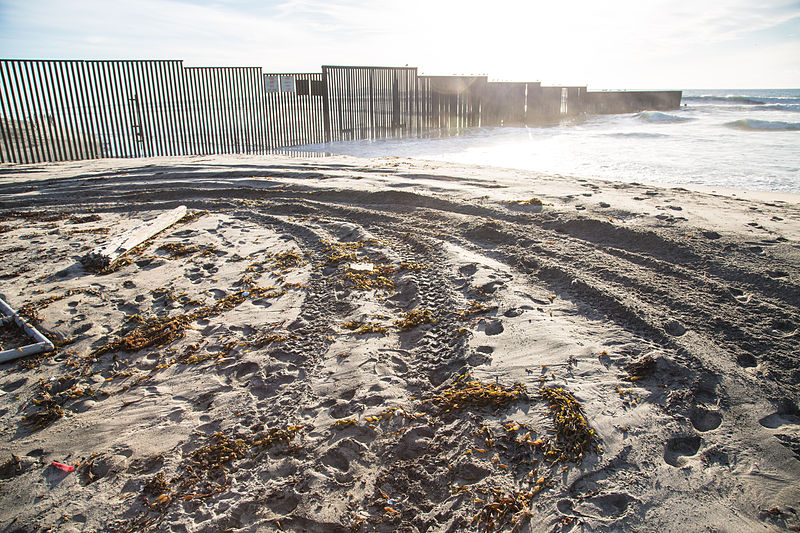- 14 3402-5578
- Rua Hygino Muzy Filho, 737, MARÍLIA - SP
- contato@latinoobservatory.org
 Foto: Tony Webster from Portland, Oregon, United States
Foto: Tony Webster from Portland, Oregon, United States
The tragedy of migrant deaths trying to cross the U.S. border across the Pacific Ocean near San Diego is highlighted in a recent study that reveals a shocking increase in drownings. This drastic increase may be directly related to the nearly doubling of the height of border walls during the Trump administration, with a 3,200% increase in drownings from 2020 to 2023, compared to the period from 2016 to 2019.
According to the published paper, the research hypothesis “is that this increased risk of injury may have encouraged more migrants to follow aquatic and maritime migration routes across the Pacific Ocean”. The study assessed drowning deaths along the U.S. southwest border before and after the increase in border wall height.
The article points out that the expansion of border barriers not only caused a great human cost, with hundreds of drowning deaths and serious injuries related to the collapse of the wall, but also triggered a series of unintended consequences. The study’s authors, Anna Lussier and Peter Lindholm of the University of California, San Diego, found an alarming increase in drowning deaths along the San Diego coast, as well as in canals and other bodies of water, while drownings along the Rio Grande, where the wall is largely nonexistent, remained largely unchanged.
The researchers highlight the lack of information available on the deaths of migrants trying to cross the border and the need for further investigation into the causes of these tragedies. Lussier and Lindholm are working to better understand the factors behind the increase in drownings, suggesting that the increase cannot simply be attributed to an increase in migration, since there has not been a commensurate increase in drownings along the Rio Grande, where migration also occurs.
In addition, they point to the lack of available government data on immigrant deaths, highlighting the need for better documentation and understanding of these issues. The research of these academics highlights the importance of a multidisciplinary approach to understanding the complex challenges faced by migrants and the consequences of immigration policies.











